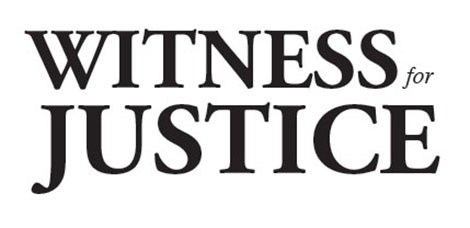Commentary: Declaring a State of Moral Emergency: Taking the Pulse
 We are a multifaceted people. We have breathed in the history of pain and breathed out the despair that was pushed into us. Our stories continue to be written by a God that truly knows our struggles. When others say we are inferior we know to check our own pulse and listen to the still speaking voice of God that is in our own hearts.
We are a multifaceted people. We have breathed in the history of pain and breathed out the despair that was pushed into us. Our stories continue to be written by a God that truly knows our struggles. When others say we are inferior we know to check our own pulse and listen to the still speaking voice of God that is in our own hearts.
On June 16, 1963 Rabbi Abraham Joshua Heschel sent a telegraph to President John F. Kennedy calling on him to declare a State of Moral Emergency in the United States. At that time, he said that prayers and solemn declarations without personal involvement was such an affront that we forfeit our right to worship God as long as we continue to denigrate and humiliate Negroes.
And here we are 54 years and some days later and still we pray and offer solemn declarations without personal involvement.
A year ago, on June 12, 2016, a man opened fire in a nightclub. He left behind 53 physically wounded individuals. He took the lives of 49, and an additional person succumbed to their wounds during the course of the year. The club was identified as a gay nightclub, a sanctuary to many LGBTQ+ identified individuals. The assailant, whose connection to love was severed, was identified as a convert to Islam. The immediate assumptions were that this was an attack by a Muslim man against the Queer community. The spin was fully emblazoned under the rainbow flag, pink washed, and the understanding of those assumptions led to an outpouring of responders who did not speak the language of many of those whose lives were lost that night. See, it was Latin Night at Pulse Nightclub during Pride.
Over the year I have been asked repeatedly why it matters that we talk about intersectionality? Why does it matter that the responders did not speak Spanish?
When we are ignorant of the ethno-cultural identities of a people, our responses often do more harm than good. Because well intentioned responders were unable to say the names of those whose lives were lost that night, mispronouncing the names so badly that already traumatized families did not know if their loved ones were hospitalized or dead. Because well intentioned faith leaders spoke of opening their churches to those families whose own religious communities would not welcome the dead… but they did so in a language that was not understood by the Spanish speaking community.
Earlier this month a new flag was flown in Philadelphia at their kick-off to Pride Month. The beautiful rainbow flag that we all quickly recognize had two new colors added to the top: black and brown; reminders—signifiers that when that Pride flag flies it represents all of us. After all, according to a 2013 survey by Pew Research 34 percent of LGBT responders identify as non-white” and those individuals were less optimistic than the white survey takers of society’s acceptance of LGBT individuals. Building community requires that we constantly check our pulse, and today, as we struggle with changing laws and #saytheirnames, we remain in a State of Moral Emergency.
Elivette Mendez Angulo is Project Coordinator of Encuentros de Gracia y Bienvenida.
View this and other columns on the UCC’s Witness for Justice page.
Donate to support Witness for Justice through the Neighbors in Need offering.
Click here to download the bulletin insert.
Related News
Liturgical Movements in Prose with Purpose
I am a reader of books and have been since the age of three. One of my childhood favorites was...
Read MoreI Hope Everyone Can Live. I Will Help.
“Truly I tell you, whoever does not receive the kingdom of God as a little child will never...
Read More
